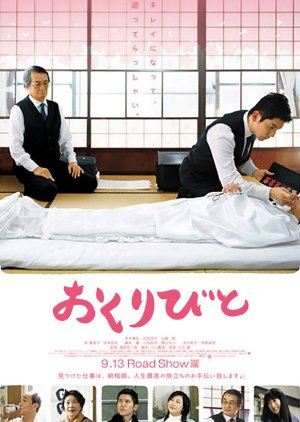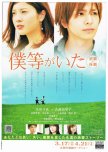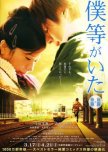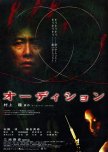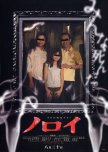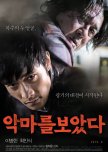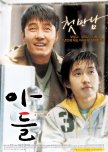
Death will happen, no matter what. But what is important how you treasure the presence of these people for as long as they live.
I love the way the actor showed such gentleness while embalming the dead. Every process was done so delicately and filled with respect to the deceased.
A very touching movie indeed. I cried more than twice in it.
Was this review helpful to you?

Acting: I really liked the acting. The initial reactions everyone had, the way people mourned. I've never seen a "nokanshi" work, but the way the actors gave life to the ritual in those scenes through the movement of their hands, and body in general, made it look like art. It was beautiful and I felt fascinated by all of it.
The way the movie closed was also touching and beautiful.
Music: The music was excellent. It created the right atmosphere by intensifying the feelings and actions the actors were portraying or by creating a calm atmosphere when needed. It never felt like it didn't belonged.
One thing you should know before starting this movie is that it's not a terribly exciting like those with lots of action sequences. It has a slow kind of pace, but it's over before you know it because of the way the story flows and the way the music helps that flow. It also has a few minor comedic scenes tossed in there. I'm sure I'll eventually re-watch it.
Was this review helpful to you?

Was this review helpful to you?

STORY - Just beautiful. There were so many things for me to learn in the story, about life, of course. Even though it's not fast paced but you will still be sucked in the story because of (As I said) the beautiful writing, so you don't have to worry about that.
ACTING/CAST - Well done to all the the actors/actresses for pulling of such a great pereformance and make the movie even more beautiful and powerful. It was perfect, espcially by the lead male, he put so much effort in it and I really felt his acting, he acted with feelings and heart, just great! Everyone who was involved in this movie deserves credit, they did an amaizing job.
Music: The music is wonderful. There were many moments where the male lead played the violin (He was meant to be a cellist in the movie)and boy as I said it was beautiful and wonderful, made the movie even deeper! Very good. outstanding!
REWATCH: I don't rewatch dramas/Movies no matter how good they are but if I get the chance to see this one again, I may think about it beacuse it's different and very good.
OVERALL: This was my second Japanese movie. Usually I only watch Korean shows but when I try some other shows from different countries I make sure that it has many good reviews and it's GREAT and yes, this one is more than GREAT so that's why it's a must watch for everbody. Belive me, you won't regret it, you'll come and thank me for the recommendation! It's deep and you'll learn many many many things. Try it!
This movie will stay in my heart for quite a long time. Memorable!
Was this review helpful to you?

Was this review helpful to you?

The basis of this story is very simple, but it carries a lot of emotional and psychological weight as we watch Kobayashi Daigo transition from what he thought his ideal life would be, to something entirely different, as well as exploring the importance of life and death, as well as the beauty of death and need to respect the dead, even for those we don't know or seemingly don't care about.
Acting/Cast:
This was a fantastic cast and Motoki Masahiro does a phenomenal job of playing the part of Kobayashi Daigo, a man who is desperately trying to find meaning in his life after loosing what he thought was his dream job, as well as dealing with the struggles of his broken family. The rest of the cast is quite simple, but do a fantastic job of supporting Motoki's character without taking away from the importance of /his/ story. The only qualms I had with regards to acting was that of Hirosue Ryouko. Her acting was decent, but I found she didn't really fit in with the rest of the cast, though perhaps that was the point, considering she's supposed to be a "city girl". I didn't find her acting as believable as Motoki.
Music:
The soundtrack for this movie is hauntingly gorgeous and does a phenomenal job of supporting the movie.
Rewatch Value:
This movie leaves such a huge psychological and emotional impact on you that I feel like I wouldn't really /want/ to watch it again. However, if I was to recommend it to someone, I would gladly sit down and watch it again with them.
Overall:
This is a Japanese classic that should certainly be watched by all.
Was this review helpful to you?

Well i LIKE ...
Because the actor,story,music and value is amazing.
Ironically different to other movie.
The story is totally unique.
It was amazing and very heart touching film.
I feel that it's a bit funny, sad, creepy and exciting.
Totally you will have something to learn.
DISLIKE
aaahhhhmm.. i don't know yet...????
REMARKABLE story line for this movie
Motoki Masahiro:-It's kind of sad..to climb only to die. Why work hard if you're going to die anyway?
Man:-I'm sure they want to go back to there birth place.
haha just notice this ^-^
GUY PLZ TRY TO WATCH THIS THANKS FOR YOUR TIME!
01:27 a.m. UAE time NYt everyone i want to watch other movie but i think i need to sleep ! bye
Was this review helpful to you?

This review may contain spoilers
The story, just like Death itself, is quite simple and could be told in a few sentences.What makes this movie amazing is how script, settings, nature, music and acting make a whole that is more than the sum of it parts.
The script itself - a journey to self-discovery, a story about leaving and letting go --has some rearkable lines that could sound cheesy but the way they are spoken, feel like profound truths of life. The acting makes as much use of silence as of speaking. The ritual of nokan has few words spoken, but the body language of the nokanshi and the bereaved speak volumes.
The music with it's leitmotif of "the Traveller" bridges the gap between what we see and what we feel.
And nature itself follows the flow of the story. The ending of the dream happens in late autumn, the winter storms accompany the lowest point of Daigo's lfe. Spring brings new hope and new life.
Similarly, the houses tell the stories of their owners: The bath house is run-down but lovingly maintained, Daigo's house where his mother lived is full of her own life and the memories of Daigo's father, and last but not least, the Nokanshi's living space is full of green and flourishing plants.
All of this is done with lovingly attention to detail: The ritual itself, of course. But have you seen that when Daigo washes the bath house owner's body -- the bowl Daigo uses is one of the bath house's?
When so much of the movie relies on silences, on the music and on the settings themselves -- what use is a review that uses the written word? Go, watch for yourself and feel what you see and hear.
Was this review helpful to you?

Death can also be elegant and dignified, as this movie truly personified
Right off the bat, "Departures" already knew the story it wanted to tell. The opening scene was intriguing, and there was an essence of mystery that made it more interesting, wanting to be unfolded.Daigo Kobayashi (Masahiro Motoki) returned to his hometown after his orchestra disbanded in Tokyo, accompanied by his wife, Mika (Ryoko Hirosue). I really liked that despite her husband's failure, she was supportive and wanted to go along with him. Now, coming back to Yamagata, his life was about to change.
Personally, I didn't have any background on the stigma surrounding the job that Daigo chose. It was appalling for me at first when his childhood friend, Yamashita (Tetta Sugimoto), avoided him after he knew what his job was.
But despite that, Daigo still chose the job of "assisting departures" under the tutelage of Sasaki (Tsutomo Yamazaki). At first, he was surprised by what the job entailed. But later on, he was able to witness the elegant, almost artistic process of noukan (encoffining). The comfort this process gave to the bereaved families and the appreciation they would give to him after doing it was the catalyst for him to grow on this job and on himself as a person.
What I really admired in this movie is that it tackled the human connection and the well-discussed concept of death. Death is a normal part of the life process; some may be afraid of it, but it makes us appreciate life more. It showed that death is the end of this life but not life itself, since it only serves as a gate for the next. Death isn't something to be afraid of; it is something to be expected. For some, including myself, this might not have hit us at home yet, but this movie opened our eyes to its inevitability and how we can handle and cope with it.
Also, what I appreciated deeply was how intricate and greatly detailed this movie imparted about the Japanese death rituals. It was shown as if it is very spontaneous yet accurate and professional, and most especially the amount of respect they give to those who have departed and their grieving families as well. This was very true for the family shown in the first part, where it was very emotional and could've easily turned the ritual into a mess, but they respected the views of the dead.
The second half might be overly emotional, but being overly emotional was its core, and it was conveyed exceptionally well. The several bereaved families that Daigo and Sasaki helped through the nobility of their utterly stigmatized and disgusted profession were such a huge proof of why they do what they do. And this job greatly helped Daigo and, to some extent, Mika grow as a couple and as individuals. Notice that Daigo now plays his cello with more life and expresses his happiness in a jollier way compared to the beginning. He was now happy at this point.
The one thing that I found lacking, and the reason why I won't give a perfect 10 on an otherwise outstanding film, is because of its rushed execution of forgiveness and reconciliation at the end. I was able to get the message the movie conveyed. The whole duration of this film tugged at my heartstrings, but the last few minutes did not do as much as I wanted them to. It felt like it was just something that they had to finally put a closure on, and that went for the movie as well. But then again, it was just adequate.
Masahiro Motoki was just a delight with how superb his acting was. At times he was just hilarious, but his portrayal of professionalism and seriousness in his job, despite initially feeling icky about it, was just amazing. The scenes where he played the cello were just outstanding, as if he were a professional cellist. And the music itself just gave more power and flow to the movie. This film did not have any magnificent cinematography, but the music really stood out and helped in conveying the emotions and mood properly, if not exceedingly.
"Departures" really told us that there is more to death than just grief. It can also be an avenue for reconciliation and forgiveness, and at the same time, it gives a deeper understanding and appreciation of what life truly is. Death can also be elegant and dignified, as this movie truly personified.
Was this review helpful to you?

